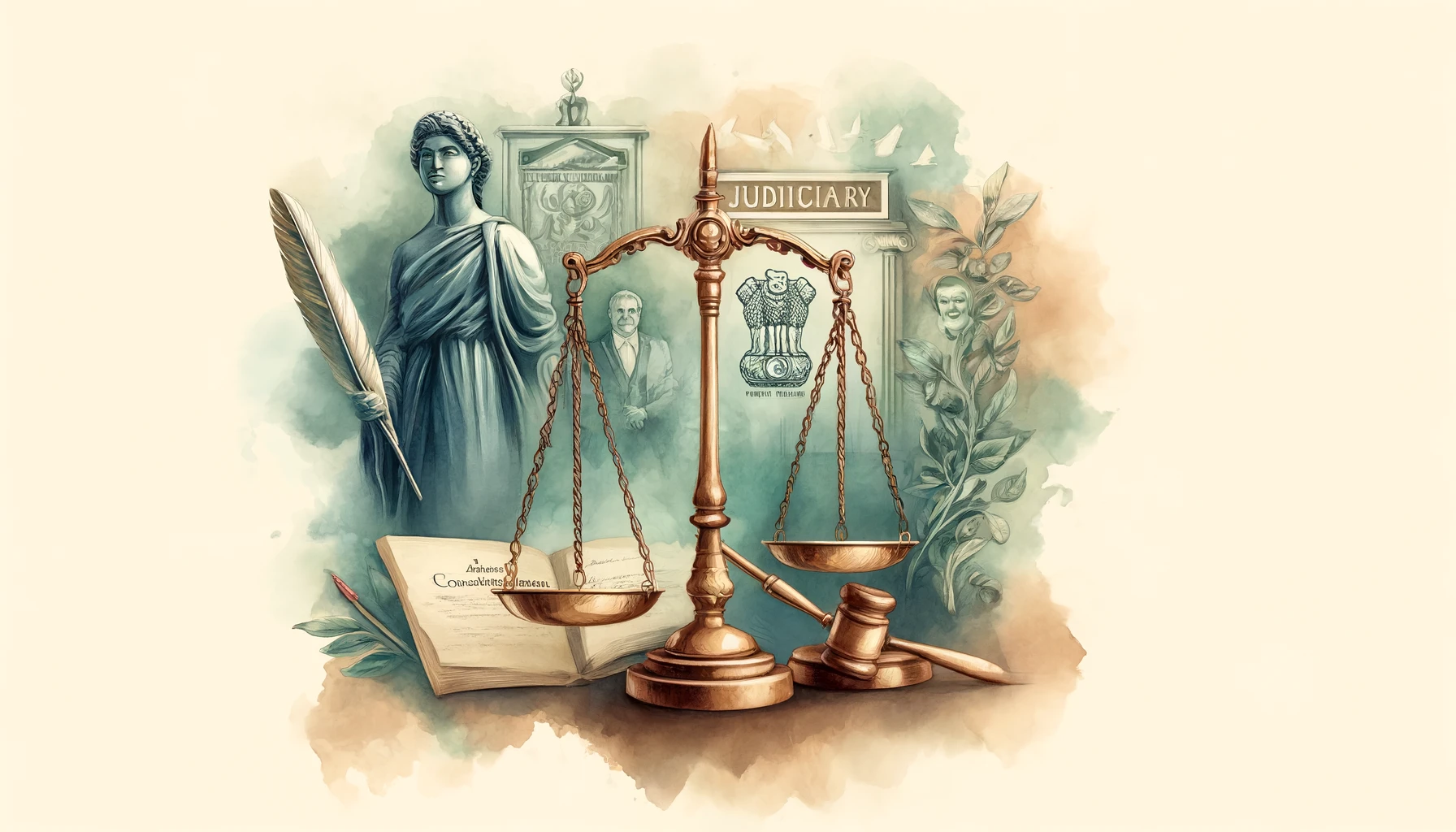
Introduction
In this case, the petitioner challenges the constitutional validity of the sedition law under Section 124A of the Indian Penal Code, 1860 (IPC). The main contention is that this law infringes on the freedom of speech. It is argued that this restriction is not in the public interest, especially for those holding opinions contrary to government views. Here’s a simplified breakdown:
- Case Focus: Reviewing the constitutional legitimacy of the sedition law stated in Section 124A of the IPC.
- Petitioner’s Argument: The law limits freedom of speech.
- Public Concern: The law may not serve the interest of the public who disagrees with governmental views.
Facts
- Kedarnath, a noted revolutionary leader, openly criticized the ruling Congress Government.
- Following his remarks, he faced charges under Section 124A (Sedition) and Section 505 (Public Mischief) of the Indian Penal Code.
- Consequently, he was sentenced to one year of rigorous imprisonment.
- His conviction was later upheld by the High Court of Patna, which dismissed his appeal.
- Challenging this decision, Kedarnath took his case to the Supreme Court. He argued that his fundamental right to freedom of speech and expression, as guaranteed by Article 19 of the Constitution of India, 1950, was violated.
- He also contended that the sedition law itself was unconstitutional, exceeding the limits set by the Constitution.
Issues involved
Is Section 124A of the IPC Unconstitutional?
- Section 124A: This section deals with sedition. It makes certain types of speech or expression against the government a criminal offense.
- Freedom of Speech: Article 19(1)(a) of the Constitution guarantees the right to freedom of speech and expression.
- Reasonable Restrictions: Article 19(2) allows the government to impose reasonable restrictions on this freedom for certain purposes, like public order or national security.
Is Section 505 of the IPC Unconstitutional?
- Section 505: This section addresses statements conducive to public mischief, which includes speech that might incite crimes or disrupt public tranquility.
- Balance with Free Speech: The challenge is to determine whether this section imposes reasonable restrictions as required by Article 19(2) or if it overly restricts free speech.
The Debate:
- Compatibility with Free Speech: The central issue is whether these sections of the IPC align with the constitutional protections for free speech.
- Legal Scrutiny: The judiciary must examine if the limitations these sections impose are justified and necessary in a democratic society.
Court’s Observations on Sedition and Free Speech
Restrictions on Free Speech: The Court noted that the sedition law limits free speech as outlined in Article 19(1) of the Indian Constitution.
Punishment Under Law: The Court acknowledged that punishing sedition falls within the reasonable limits allowed by Article 19 of the Constitution.
Criticism of Government vs. Political Parties: It’s important to distinguish between criticizing the government itself and political parties, the Court emphasized.
Impact on Public Order: The Court pointed out that the kind of statements covered under Section 124A (Sedition) could disrupt peace and order.
Narrow Interpretation: Section 124A should be applied strictly to statements that directly incite public disorder, the Court advised.
Balancing Freedom and Restrictions: While freedom of speech should be protected as much as possible, the Court recognized that reasonable limits are essential for national safety and integrity.
Conclusion
The Court has decided on the restrictions imposed by Section 124A, concerning the offense of Sedition in the Indian Penal Code (IPC):
- The Court determined that the restrictions are constitutionally valid.
- It is necessary to uphold the provision to maintain legal and societal order.
- Therefore, Section 124A will remain in effect as it stands.
NOTE:
Section 124A of the Indian Penal Code (IPC)
- What is Sedition? It refers to acts that foster hatred, contempt, or disaffection against the government established by law in India. This includes words (spoken or written), signs, or visible representations.
- Possible Penalties: The punishment can be as severe as life imprisonment. Fines may also be imposed, or imprisonment could be up to three years with fines.
Clarifications Provided by the Law
- What is ‘Disaffection’? This term includes feelings of disloyalty and hostility.
- When is Criticism Not Sedition?
- Expressing disapproval of government measures to change them legally does not count as sedition.
- Criticizing government actions without inciting hatred or contempt is also not sedition.
Recent Judicial Developments
- Supreme Court’s Stand (2022): In the case of S.G. Vombatkere v. Union of India, the Supreme Court temporarily halted the enforcement of Section 124A.
Recommendations for Reform
- Law Commission’s Proposal: Despite calls for reform, the 22nd Law Commission suggested keeping this law but with modifications.
- New Safeguard: A police officer of at least Inspector rank must conduct a preliminary inquiry before an FIR (First Information Report) can be filed for sedition.

